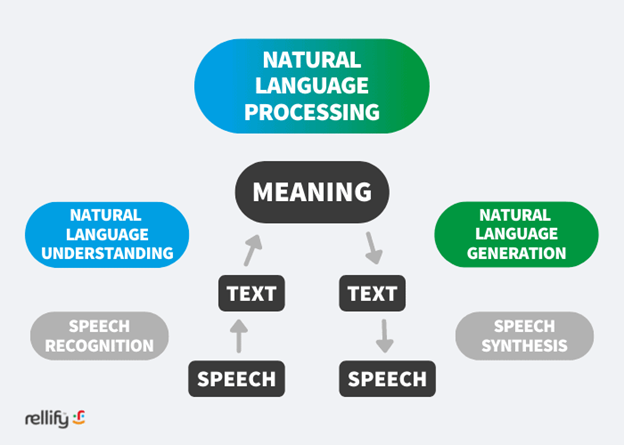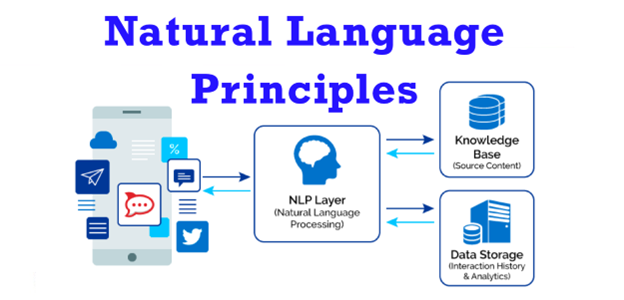Content
SHARE

As we delve deeper into the digital age, the importance of personalised marketing messages continues to grow. Businesses are constantly seeking innovative ways to connect with their customers on a deeper level. One such way is through the use of Natural Language Processing (NLP). But what exactly is NLP and how can it be used to enhance personalised marketing messages? Let’s explore.
The Essence of Natural Language Processing
Natural Language Processing, often abbreviated as NLP, is a branch of artificial intelligence that deals with the interaction between computers and humans through natural language. The ultimate objective of NLP is to read, decipher, understand, and make sense of the human language in a valuable way. By leveraging NLP, businesses can better understand their customers’ needs, preferences, and behaviours, thereby allowing them to create more targeted and personalised marketing messages. This can lead to improved customer engagement, increased customer loyalty, and ultimately, higher sales.
Components of NLP
NLP is composed of two main components: Natural Language Understanding (NLU) and Natural Language Generation (NLG). NLU involves the interpretation of human language by machines, while NLG is the process of generating natural language from a machine representation system. Both NLU and NLG play a crucial role in personalised marketing. NLU allows businesses to understand customer feedback, reviews, and queries, while NLG enables them to generate personalised responses and messages that resonate with each individual customer.
Source: Team, R. (2023, March 21). A Guide to Using Natural Language Processing for Content Marketing
How NLP Enhances Personalised Marketing Messages
Now that we understand what NLP is and its components, let’s delve into how it can be used to enhance personalised marketing messages.
Improved Customer Understanding
By analysing customer feedback, reviews, and queries, NLP can help businesses gain a deeper understanding of their customers. This can reveal valuable insights about their needs, preferences, and behaviours, which can be used to create more targeted and personalised marketing messages. For instance, a business can use NLP to analyse customer reviews on its website or social media platforms. This can reveal common themes and trends, such as what customers like or dislike about the business’s products or services, which can be used to inform future marketing messages.
Personalised Customer Interactions
NLP can also be used to personalise customer interactions. For example, businesses can use NLP to generate personalised responses to customer queries or comments. This can make customers feel valued and appreciated, which can increase their loyalty and likelihood of making a purchase. Furthermore, businesses can use NLP to send personalised marketing messages to each individual customer. For instance, a business could use NLP to analyse a customer’s past purchases and browsing history, and then send them personalised product recommendations based on this information.
Source:Kayte, S. (2022, March 30). Natural Language principles – Chatbots life. Medium
The Future of NLP in Personalised Marketing
As technology continues to advance, the role of NLP in personalised marketing is set to grow. With the rise of voice search and voice assistants, businesses will need to leverage NLP to understand and respond to voice queries in a natural and personalised way. Furthermore, as customers continue to demand more personalised experiences, businesses will need to use NLP to deliver personalised marketing messages that resonate with each individual customer. This will require businesses to continually invest in NLP technology and skills, and to keep up-to-date with the latest trends and developments in the field.
Overcoming Challenges
While NLP holds great potential for personalised marketing, it also presents several challenges. These include the complexity of human language, the need for large amounts of data, and the risk of privacy violations. Businesses will need to overcome these challenges in order to fully leverage the benefits of NLP. Despite these challenges, the future of NLP in personalised marketing looks bright. With the right approach and resources, businesses can use NLP to create more targeted and personalised marketing messages, thereby enhancing their customer engagement, loyalty, and sales.
Conclusion
In conclusion, NLP is a powerful tool that can greatly enhance personalised marketing messages. By understanding and leveraging NLP, businesses can gain a deeper understanding of their customers, personalise their interactions, and deliver marketing messages that truly resonate. While there are challenges to overcome, the potential benefits of NLP make it a worthwhile investment for any business looking to enhance their personalised marketing efforts.
Frequently Asked Questions About NLP
What is Natural Language Processing NLP in Marketing?
Marketers and strategists can improve their decision-making through natural language processing (NLP) that enables social media listening. Natural language processing, together with machine learning, can identify entities and relationships in unstructured data – which forms the bulk of social media content.
What are the Business Benefits of Natural Language Processing?
NLP-trained chatbots can dramatically help in reducing costs typically associated with repetitive and manual tasks. Businesses stand to benefit tremendously as machine learning continues to improve chatbot capacity, with people generally becoming more comfortable using these systems.
What are Three Advantages of Natural Language Processing?
- Enable non-subject matter experts to find answers to their questions.
- Analyse data from both structured and unstructured sources.
- Identify the root causes of your business problems.
Is NLP a Form of AI?
Natural language processing (NLP) refers to the branch of computer science—and more specifically, the branch of artificial intelligence or AI—concerned with giving computers the ability to understand text and spoken words in much the same way human beings can.
What is the difference between AI and NLP?
Natural Language Processing (NLP) is a branch of Artificial Intelligence (AI) that enables machines to understand the human language. Its goal is to build systems that can make sense of text and automatically perform tasks like translation, spell check, or topic classification.














